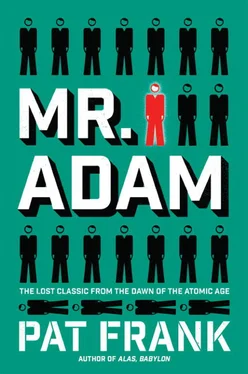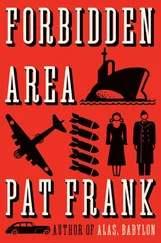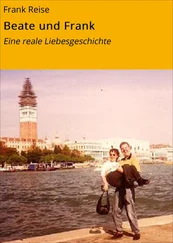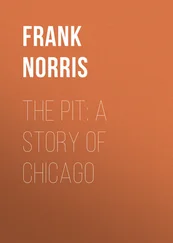Homer looked dazed and helpless. “I see,” he murmured.
“You’re pretty lucky at that,” said the colonel. “At first, we were going to put you down with the gold in Fort Knox. But the Surgeon General decided it might be bad for your health. Now that I’ve seen you in person, I think he was probably right. You weren’t in the Army, were you?”
“No,” said Homer. “I wasn’t in the Army. The FEA sent me to Australia to locate quartz crystals. They were needed for radar.”
“Well,” said the colonel, “it’s too bad you weren’t in the Army, but I guess that radar tieup will show you’re okay. I mean you weren’t a conscientious objector, anyway.”
“No, I wasn’t a conscientious objector. Please, can I go upstairs and see Mary Ellen?”
“Well, make it snappy,” the colonel ordered. “I’ve got a lot of papers for you to fill out. Incidentally, I’m taking you out to dinner tonight. My commanding general wants to meet you.”
Icaught the next train back to the city. I found J.C. in his office and told him that the Army had taken over, and my extra-curricular activities in Tarrytown had come to an end. I also told him I felt pretty sorry for Homer Adam.
“You’ll feel sorrier,” observed J.C., “when you see what happens to him in Washington!”
“How’s that?” I asked.
“You’ve been too close to things in Tarrytown,” J.C. surmised, “to keep up on what’s been happening. First of all, there’s a tug-of-war going on between the National Research Council and the National Re-fertilization Project as to who will get Adam.”
“What do you mean, get him?”
“Well, both outfits think they can use Adam to start our birth rate going again. They’ve hinted at all sorts of schemes. Some of them don’t sound completely unreasonable. At least they’re no more unreasonable than what has already happened to us.”
“Poor Adam!”
“That isn’t all. There’s a battle going on between Congress and an Inter-Departmental Committee as to who will decide policy on Adam. And that isn’t all, either, because there is a quite powerful group which feels that the question of Adam is international, rather than national, and should be turned over to the United Nations.”
“Quite a story, wasn’t it,” I mentioned, hinting at a bonus.
J.C. got that faraway look in his eyes, staring out over the masonry filled with pride that rises from the rock of Manhattan. “Quite a little fuss,” he said. “We are indeed blind and naive if we believe that in this universe we will find living, feeling, happy, hurting, thinking creatures on this tiny sphere alone—this speck of an earth revolving around a dim star we call the sun, which is not even part of a constellation.
“It is as if an ant heap had been stamped down, and all the ants within cried that the world had come to an end.”
Sometimes J.C. gave me the shivers.
On a day in early December when an ice storm swept out of the northeast, and stiffened and slowed the arteries of Manhattan, and I knew that J.C. Pogey would want staffers covering the damage on the Jersey coast, I developed a convenient chill and retired to Smith Field to wait out the weather.
There is no vacation so exciting, so satisfactory, relaxing, and inwardly pleasing as that of a small boy playing hookey from school. I made the most of it. I clad myself in the soft, blue, silken pajamas inherited from Lynn Heinzerling when we were roommates at the Hotel de la Ville, in Rome, and he was ordered to Czecho-Slovakia; the wonderful brocaded Arabian robe that Noel Monks had purchased on the Street Called Straight, in Damascus, and willed to me when he flew Indiaward; and the pliant red leather slippers, with upturned toes, that had cost me three dollars, American gold seal, in the medina in Casablanca.
I cast myself upon Smith Field, set coffee dripping, and opened a package of cigarettes and a bottle of rye. I touched a switch at the side of the bed, and on the television screen there appeared an oval blur, and then the blur resolved itself into the face of a man—a full-jowled, hearty man who looked as if all he did was attend World Series, Bowl games, the tennis championships at Forest Hills, and the international shooting matches at Camp Perry. It turned out that this was expert deduction, because the man said:
“This is Malcolm Parkinson. I am speaking to you from sun-drenched Hialeah Park, Miami, Florida, and in a few moments I am going to focus your television camera on this magnificent race course, and you will see—yes, see—the first event on today’s program…”
I picked up the telephone and called Sam’s Cigar Store, at Sixth Avenue and Tenth. “Send me,” I requested, “a Racing Form and Bob’s Best Bets. ”
“In this weather?” Sam demanded.
“The horses,” I pointed out, “are not running up the Avenue of the Americas.”
“That I know,” said Sam. “That I can see from here.” He asked: “Tell me, Mr. Smith, why don’t they do something about Mr. Adam?”
“Who do you mean by they?”
“Them bureaucrats.”
“What,” I inquired, “would you have them do?”
“The missus keeps pestering me,” said Sam. “She believes in A.I.” A.I. had become the popular abbreviation for artificial insemination.
“Well, there’s bound to be a decision soon,” I assured him.
“There better be, or there’ll be hell to pay in this country. My wife says she’s not getting any younger. I tell you, Mr. Smith, she wants kids.”
When the Racing Form arrived I began to dope the horses at Hialeah. Like every frustrated sports writer, I believe I am a better handicapper than any now operating at the tracks. I picked Fair Vision in the second, and then called “Two Tone Jones,” a gentleman of doubtful color who operates a bookmaking establishment near Sheridan Square. I bet two across the board on Fair Vision, poured myself a rye, and settled back on the pillows to watch the race.
I found that watching the races, from a bed in New York, was more satisfactory than watching them at the track, in Florida. Maniacs do not jump up and down in front of you, deafening you with their shrill cries, and interfering with your vision. Nobody picks your pocket. Nobody tramps on your feet. You don’t have to butt your way to the parimutuel windows, tramping on other people, between each race. You don’t have to foam at the mouth while crawling through traffic jams, park your car, pay $2.20 admission, avoid touts, buy programs, pencils, and peanuts, or steer your wife away from the hundred-to-one shots. You don’t have to shiver in a white linen suit, and try to warm yourself by talking about the cold wave up north.
You just lie there in bed and lose your money.
When I telephoned to place my bet on the fifth, Two Tone Jones said: “You got a minute, Mr. Smith? I want to ask you a question.”
“Certainly,” I said graciously, for by then Two Tone Jones was one of my considerable creditors.
“We’re having a little argument up here,” said Two Tone Jones. “You’re a pretty smart man, Mr. Smith, and maybe you can help us out.”
“I’m not very smart about picking horses.”
“Oh,” said Two Tone, “we all have our bad days. Now what we want to know, Mr. Smith, is what about this here artificial insemination?”
I drank some black coffee. “Well, what can I tell you about it?” I said. I was pretty sick of this A.I. It reminded me of toddle tops, ouija boards, every day in every way I feel better and better, two cars in every garage, life begins at forty, and every other fad that ever existed.
“Well, we just want to know about it,” Two Tone complained.
Читать дальше












